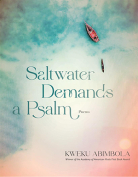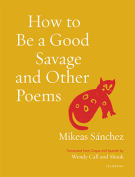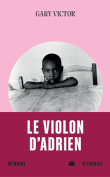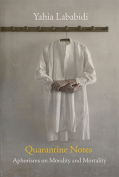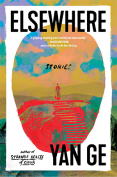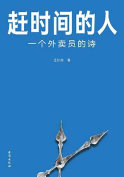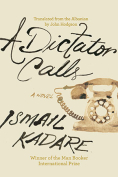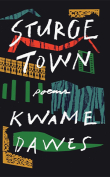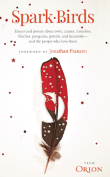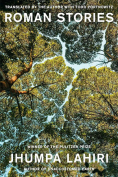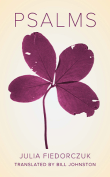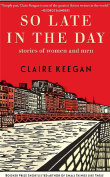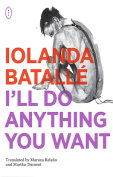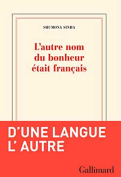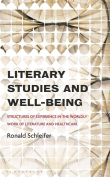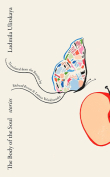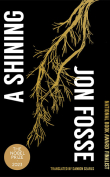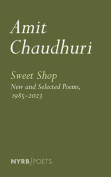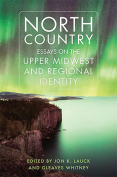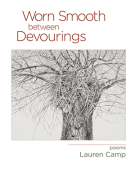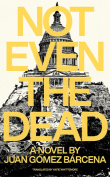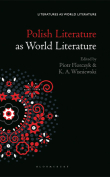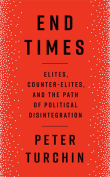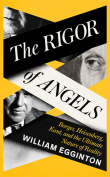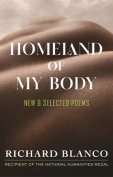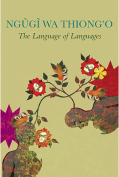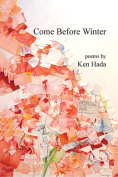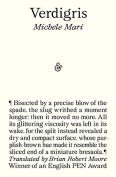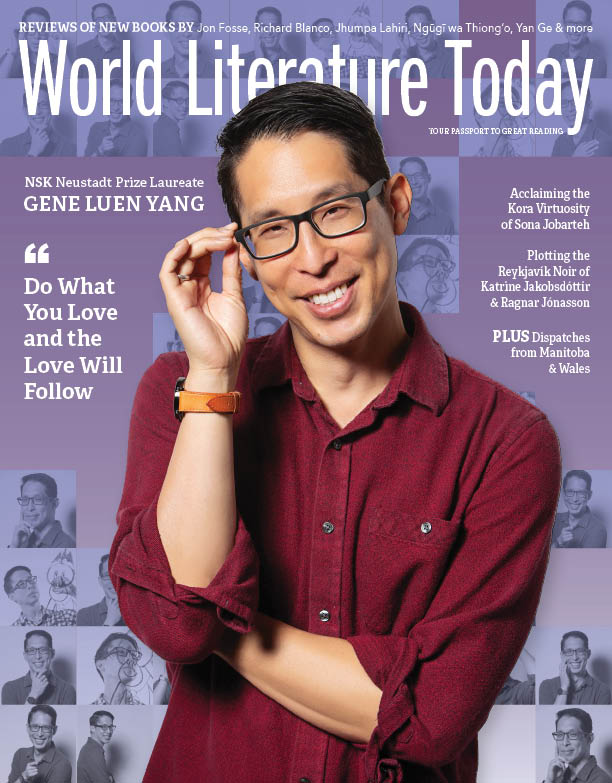Homeland of My Body: New and Selected Poems by Richard Blanco
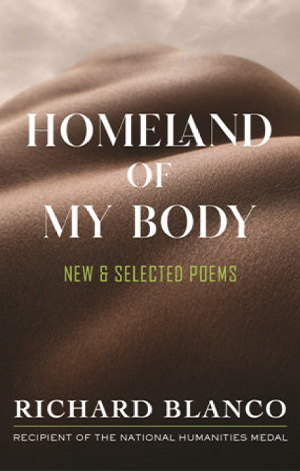 Boston. Beacon Press. 2023. 202 pages.
Boston. Beacon Press. 2023. 202 pages.
In Homeland of My Body: New and Selected Poems, Cuban American poet Richard Blanco, like many authors who live on the hyphen, writes in search of home, of roots, of belonging, moving beyond the physical geography of place—the Miami of his childhood, Calle Ocho, Little Havana—to a poetics that locates identity in the materiality of the body. Structurally, the collection is divided into six sections comprising 117 poems, the first and last sections, “Radiant Beginnings” and “Here I Am,” debuting thirty-four new poems.
Homeland of My Body is the poet’s third book with Beacon Press, where Blanco is in good company. Founded in 1854, Beacon is home to such luminaries as James Baldwin, Mary Oliver, Martin Luther King Jr., Sonia Sanchez, fellow Cuban American Achy Obejas, and Puerto Rican poet Raquel Salas Rivera. The author of over a dozen books, including How to Love a Country, City of a Hundred Fires, Directions to the Beach of the Dead, and Looking for the Gulf Motel, as well as the memoirs For All of Us, One Today: An Inaugural Poet’s Journey and The Prince of Los Cocuyos: A Miami Childhood, Blanco is the recipient of an even greater number of awards, among them the Agnes Starrett Poetry Prize, the Paterson Poetry Prize, the Thom Gunn Award, the Lambda Literary Prize, and, in 2023, the National Humanities Medal.
Born in Madrid in 1968 to Cuban exile parents and arriving in the United States as an infant, Blanco, an engineer by education, came to national attention when he was chosen by President Barack Obama to be the 2013 inaugural poet, for which he penned and read the poem “One Day” and, in doing so, followed in the footsteps of such poetic deities as Robert Frost, Maya Angelou, Miller Williams, and Elizabeth Alexander, at the same time becoming the first Latinx, first gay man, and first immigrant poet to receive this distinction.
In “One Day,” which is not included in this collection, Blanco celebrates the oneness of the American experience: “We head home: through the gloss of rain or weight / of snow, or the plum blush of dusk, but always—home, / always under one sky, our sky.” In Homeland of the Body, Blanco extends the trope of home to include the corporeal, as if after years of searching for home, wandering between the interstices of Cuban Americanness, he finds home in the physical geography of his body, that of an unapologetic gay man who is finally at home in his skin.
“The Splintering,” a new poem that opens the collection, begins: “As a boy I was all body, my body part of all / that was.” This Anaxagorean axiom, that all things are in everything, serves as the thesis for what can be read as a poetic dissertation, in which the body and nature, more particularly the body and home, are one. In the poem, the poet describes climbing, as a young boy, a backyard mango tree: “Its trunk the will // of my spine, my arms every branch’s arms / coddling the wind. Its bark the thick flesh of // my hands needled with splinters when I fell // into my mother’s terrorful cries. ¡Ay, Dios mío!” “The Splintering,” which gestures at a bildungsroman, ends with the symbolic awakening of the young Blanco to the unconditional love of his mother and of himself.
Blanco then tackles, and in doing so masters triumphally, a traditional ekphrastic poem in “Until This: An Ekphrastic Ars Poetica.” Bearing the epigraph “after Jacques-Louis David’s painting The Death of Marat,” the poem continues the trope of artistic awakening as a twelve-year-old Blanco glimpses “a glossy apparition in a coffee-table book, / when [he] first felt the romance of this yearning.” In “Translation for Mamá,” Blanco alternates between English stanzas and their Spanish translation as if making contrition for having “always written / in English, my language of silent vowel endings / never translated into your language of silent h’s.” In “Queer Theory: According to My Grandmother,” the poet abandons the lyric “I” for the reprovingly homophobic voice of his abuela, who admonishes her grandson to “[n]ever drink soda with a straw,” to “[a]void hugging men,” to “[n]ever play house,” and “for God’s sake, never pee sitting down,” culminating in the condemnation to “not look like some god-damn queer.” In “Island Body,” the marriage of body and place and the unsated nostalgia for Cuba reach their pinnacle. “Forced to leave home, but home / never leaves us, where exile / takes us, we remain this body made / of the red earth of our island.” In this poem, and in “Island Within,” there are echoes of Cuban poet Virgilio Piñera’s The Weight of the Island.
In the final section, “Here I Am: New Poems Part 2,” we find the collection’s title poem, “For the Homeland of My Body,” comprised of six anaphoric stanzas, each beginning with “For my,” followed in each stanza by a different body part: ears, hands, feet, lungs, eyes, hips, veins, legs, and flesh. The poem ends: “For my flesh: / still this flesh, alive with all the places I have / ever loved, or lost, or have yet to find and / to lose, this constant homeland of my body.” Later in this section, Blanco has penned an “Anti-Poem”—a nod perhaps to Chilean poet Nicanor Parra—an eighteen-line poem that narrates a man who, drinking coffee, “strong and bitter as the street / outside,” watches the passersby passively from “behind the storefront window.” True to the antipoetry aim, this antipoem celebrates the banal and, in doing so, disavows, at least in name, any poetic pretense.
Blanco ends Homeland of My Body with the aptly titled “Say This Isn’t the End,” a seven-stanza poem in which each stanza begins with the suppositive “Say.” In this poem, Blanco dialogues with his reader as he looks to the future: “Say my husband and I will keep on honing / our home cooking together, find new recipes / for love in the kitchen.” In the last stanza, Blanco offers an alternate ending: “Or say this will be my end [. . .] Say this will be the last breath of my last poem.” For our sakes, and for the sake of poetry, let’s hope it’s not.
University of Tulsa
 George Henson is the author of ten book-length translations, including works by Cervantes laureates Sergio Pitol and Elena Poniatowska. His translation of Abel Posse’s memoir A Long Day in Venice was recently longlisted for the Queen Sofía Spanish Institute Translation Prize. He is a 2021–2023 Tulsa Artist Fellow.
George Henson is the author of ten book-length translations, including works by Cervantes laureates Sergio Pitol and Elena Poniatowska. His translation of Abel Posse’s memoir A Long Day in Venice was recently longlisted for the Queen Sofía Spanish Institute Translation Prize. He is a 2021–2023 Tulsa Artist Fellow.
